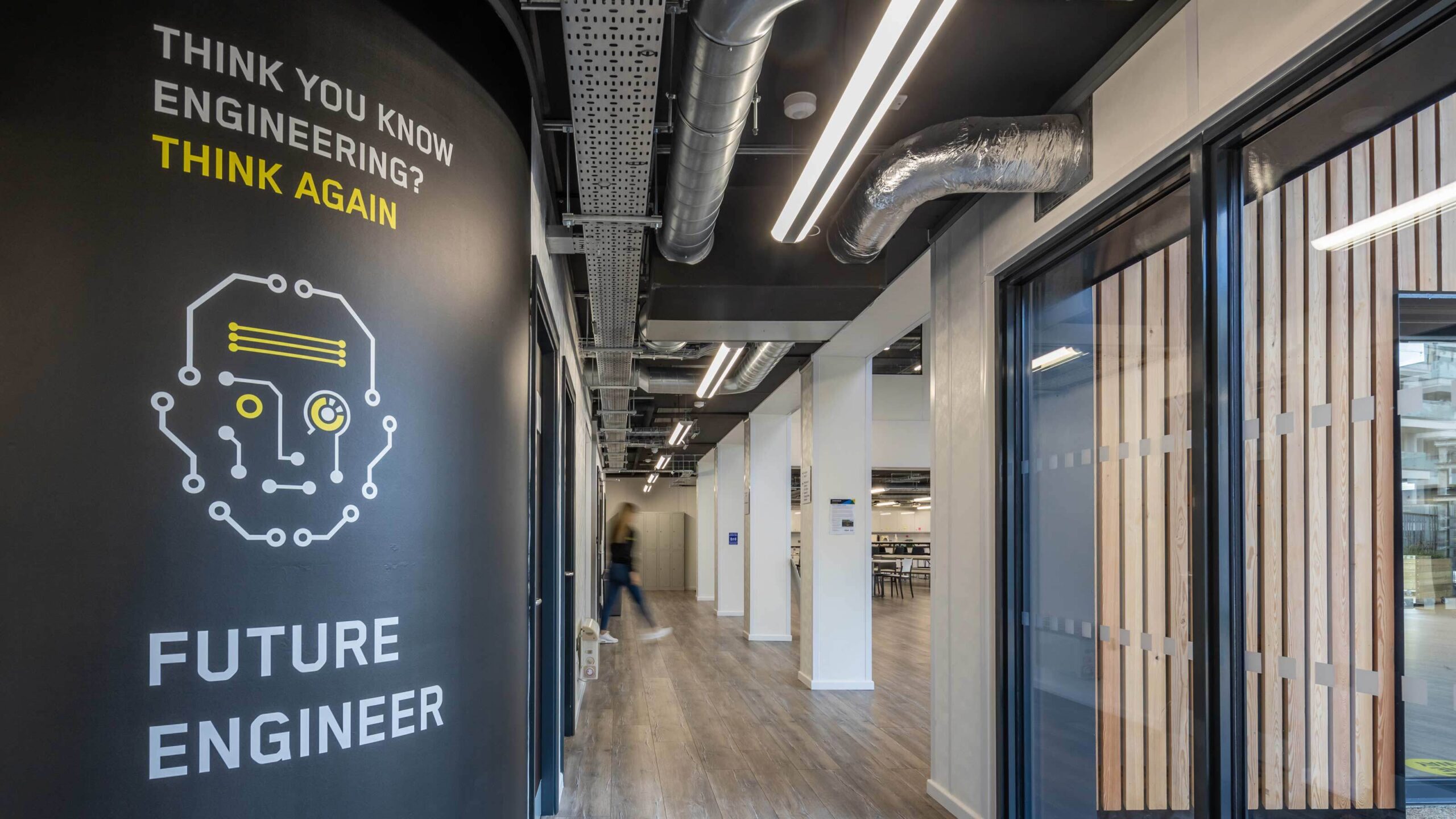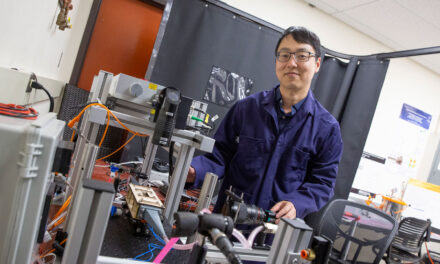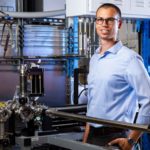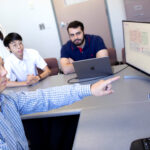
ASU helps launch a new project-based engineering program in London

Above: TEDI-London seeks to expand perceptions of engineering and recruit a more diverse range of students. The curriculum emphasizes design thinking, functional themes — rather than academic disciplines — and socially responsible outcomes. Photo courtesy of TEDI-London
A creative and nontraditional approach to engineering education began this fall when The Engineering and Design Institute in London, or TEDI-London, launched its project-driven degree programs in global design engineering.
TEDI-London is an initiative of the PLuS Alliance, a partnership that combines the resources of Arizona State University, King’s College London and UNSW Sydney to solve an array of pressing global challenges.
“One of those challenges is the acute need for more diverse engineering talent in the workforce,” says Ann McKenna, the vice dean of strategic advancement for the Ira A. Fulton Schools of Engineering at ASU. “Addressing that lack of talent requires more than expanding the capacity of current educational systems. It also means tackling a persistent gap in engineering, so we have designed TEDI-London to help expand perceptions of who should be an engineer.”
TEDI-London’s first cohort of 27 undergraduate students is almost equally male and female, which is a significant contrast with typical programs in which women represent less than a quarter of students. The cohort also includes many students without extensive secondary school math and science credentials.
“We conducted focus groups with potential students who are not from traditional STEM backgrounds, and we asked what would excite them about involvement in engineering,” McKenna says. “We found that they really want to know they can make a practical difference, meaning that their work will be important to the lives of others. So, the new program is conceptualized around societal impact, as opposed to just developing technology.”
This orientation means TEDI-London’s educational content is organized by functional themes such as smart cities and user-centered design rather than according to disciplinary categories such as chemical or mechanical engineering. Other key elements are meant to develop professional competencies related to social responsibility, commercial acumen and ecological sustainability.
“We are not discarding math, science and other traditional aspects of engineering. This is an accredited degree program, so it needs to cover those fundamentals,” McKenna says. “However, the student narrative is about broader aptitude, personal attitude and overall ability. TEDI-London’s focus goes to tackling societal challenges such as environmental sustainability and health care provision. These cultural considerations can make engineering education more inviting, more inclusive and better able to generate more globally relevant solutions.”
TEDI-London delivers instruction in a student-centered way. The platform, known as a learning tree, offers branches or pathways formed from several hundred nodes, which are three-hour blocks of online, interactive content. Nodes provide the just-in-time knowledge necessary for students to complete the projects that form the heart of the TEDI-London experience.
“Students work on a team guided by a faculty member who helps them to identify which nodes will offer the skills required to complete a given project,” says Trevor Thornton, a professor of electrical engineering in the Fulton Schools and an early collaborator with TEDI-London leadership.
“The students then master these nodes through self-guided learning using curriculum such as video lectures, worked examples and problem sets,” Thornton says. “Once they achieve the desired level of mastery, they apply their newfound skills to complete their project.”
It’s an innovative approach, and it took significant support from the Fulton Schools and PLuS Alliance peers in London and Sydney to build the learning infrastructure necessary to offer such a flexible, modular program.
McKenna says ASU’s experience with digital content delivery for online engineering degrees represented a key source of assets for the development of the TEDI-London curriculum. Thornton, for example, helped to adapt current undergraduate course material from the School of Electrical, Computer and Energy Engineering, one of the seven Fulton Schools, for different nodes.
Fulton Schools faculty members also supported workshops to determine how and when to introduce specific core concepts of engineering science, and how projects should be paced for teams of students to effectively apply their course experience together and progress through the curriculum.
Testing the operation of the new TEDI-London platform involved short-term summer school sessions with students from the three PLuS Alliance institutions in 2019, 2020 and 2021. The initial round revealed how to best structure support for learners within an atypical, globally oriented curriculum. By the final round, students were piloting the actual systems used by the degree program that launched this September.
The benefits of this innovative work extend beyond the new institute in the United Kingdom. McKenna says Fulton Schools leaders are evaluating how insights gained from creating TEDI-London can inform development of the new School of Manufacturing Systems and Networks, as well as the reimagining of The Polytechnic School.
“Additionally, we now have a model for a fully adaptable and transportable engineering degree program, so we could launch others,” McKenna says. “It’s TEDI-London today, but it may be TEDI in another location tomorrow. There is a lot of opportunity to accelerate ASU’s engineering expertise across multiple global academic partnerships.”



































